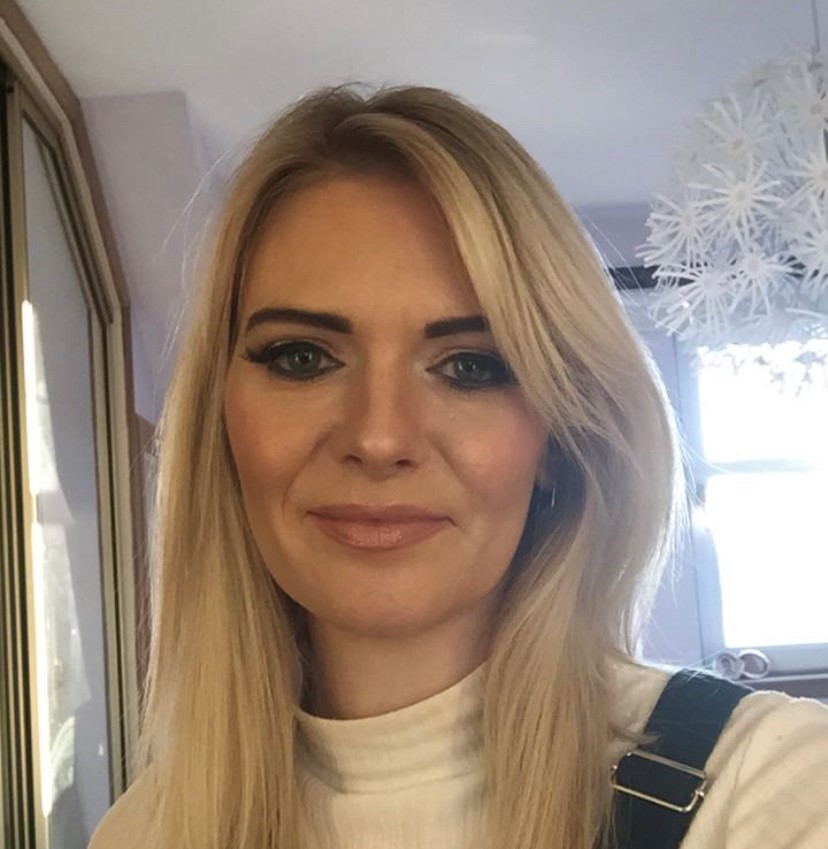Sarah’s story: Building resilience at youth
Sarah, who works in Tayside for Change Mental Health, was diagnosed with a generalised anxiety disorder at 21 and learned how to become more resilient.

Resilience starts from when you’re young and I suppose in a sense it’s like you need a role model in your life to show you how to be resilient, or maybe you just need to have lots of different life experiences throughout your childhood.
I was diagnosed with a generalised anxiety disorder when I was 21. I had known my whole life there was something – I used to think there was something wrong but then I realised there’s not actually anything wrong with me. Somebody hadn’t told me what was wrong with me.
I can remember my very first day of primary school and the feelings I got with anxiety. I remember I was in a class of 30 and I don’t remember any other children acting or feeling like the way I did. Especially when I grew older and became a teenager, a lot of my friends wanted to go out but my anxiety would kick in and I’d think ‘this could happen and that could happen’. A lot of people would laugh at me because of my ideas because I catastrophised everything and always thought of the worst case scenario. It debilitated me because it would stop me from doing things that other people were doing.
When I went to university, I had my first panic attack doing exams and didn’t know what it was. I went through this period of time for two years when I actually thought I was dying, like I had something stuck in my throat. I’d been to get X-rays and got cameras in my throat, insistent that something was there. It was just like extreme anxiety that my muscles were all distorted, giving me this illusion that there was something in my throat and I couldn’t swallow but there was actually nothing there. I think that shows how extreme the anxiety can get when it’s not dealt with – we’re talking about 20 years of anxiety that had never been dealt with.
I went to the doctor when I was 21, helpless. After being through hospitals and whatnot, the doctor reckoned I had anxiety. This was verging 20 years ago. I didn’t know what anxiety was as a mental health condition. After being prescribed medication, I went back after two weeks and I was a completely different person. I hadn’t thought about my throat.
If I had just been diagnosed as a child – and my mum and dad didn’t even think there was something wrong with me, even when I stopped eating as a child. I thought there was probably some poison in my food or something, these were the sort of crazy ideas that I would have in my head. People thought I just had an overactive imagination and was a worrier. These classifications didn’t really help me.
“It took me 21 years to get that anxiety diagnosis, not knowing what was happening and why my mind thought the way it did. After that and adversity during my teenage years, I became more and more resilient after everything that was thrown at me.
“I could have got depression but I kept seeking answers. I’m extremely resilient now. I still face a lot of challenges and life hits you with different things.”
Sarah
I worked in quite a tough school in a deprived area. And I could see there was a lot of teachers well involved in dealing with resilience, having to help kids be resilient and in some cases helped our parents to be resilient as well.
I’m really glad that there’s Bloom: a programme being delivered in high schools teaching students about mental health resilience. I just wish there was something like this at primary school because resilience needs to be taught at an early age. Children can learn how they overcome trauma and become more resilient then build on that all through their life.
When I got the position here working for Change Mental Health’s Resilience service in Tayside, I was teaching which was becoming really stressful and not what it used to be. I still do the odd teaching but I just wanted to get into something that was going to help people with something similar to what I went through, as I actually think I’m quite good at it. That’s purely because of what I’ve been through and what things have worked for me but also what might work for other people. But I know what worked for me might not work for other people.
When people come to me, I really empathise with what they’re going through – especially in terms of anxiety.
With the Resilience service, one of the parts of the ‘life jacket’ is self-awareness and I think being aware of yourself and being aware of going into that negative mindset is going to start triggering your anxiety. Whereas I wasn’t aware of any of these strategies and techniques back then so I think it’s a good place for people we’re supporting who are just above the age of 16 where they can turn their live around at a young age. They can start realising how to help themselves. Back when I was 21, it was take your medication and that’s it. There are loads of resources nowadays that help you: apps, webinars, everything. You can learn so much.
contact
Our Advice and Support Service is open Monday to Friday, 10 am to 4 pm (closed for lunch between 12.30pm and 1.30pm), where advisers can signpost you to local support that most fits your needs, including our Change Mental Health services. We offer initial advice on money worries and help to deal with emergencies.
Contact 0808 8010 515, email us at advice@changemh.org or fill out the enquiry form on the Advice and Support Service page.


